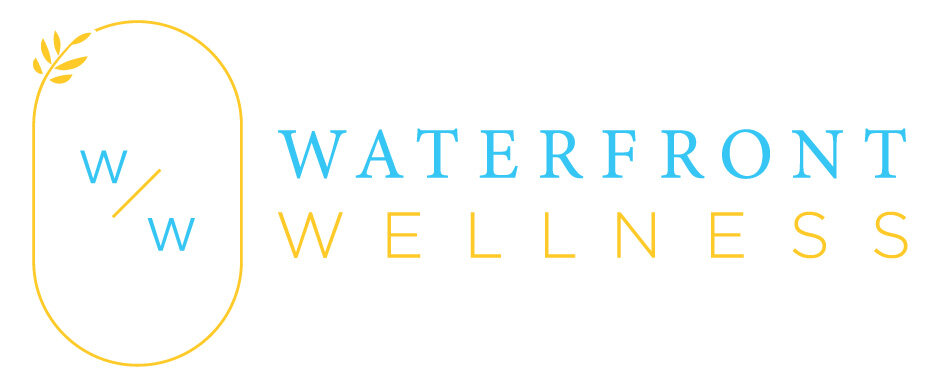BRAINFOG? Let's Fix It!
/One of the most common complaints I hear from patients concerns their poor memory, lack of focus, and brain fog. Every single day patients come in to my office to talk to me about their brain. They are secretly worried they may be getting dementia or Alzheimer’s. But let me reassure you that there is a big difference between forgetting where you put your glasses (brain fog) and forgetting that you even wear glasses in the first place (possibly Alzheimer’s)!
I myself had these same concerns a few years back and, out of sheer frustration and panic, dove head-on into figuring out how to fix my brain. I read everything I could get my hands on and I’m happy to say that with a little effort I have my sharp mind back.
OK, so here are the top 10 brain killers (in no particular order) followed by 10 ten things you can do to heal your brain.
Top 10 “Brain Killers”:
1. SUGAR! Researchers are now calling Alzheimer’s “Type 3 Diabetes”. Yes, that’s right. Sugar is toxic to your brain. Not only does it cause rapid spikes and crashes of your blood sugar which make you irritable and foggy but it also causes a release of inflammatory chemicals which directly damage the brain. Diabetics have a four-fold increase in risk of Alzheimer’s. Research shows that Hemoglobin A1C levels (a 90 day measure of blood sugar) is directly correlated to shrinkage/damage to the brain. And don’t even get me started on artificial sweeteners . . . .
2. GLUTEN - a protein in wheat products has been found to be highly damaging to our brains. Modern wheat is very hybridized which has increased the gluten content 50% over the past 50 years! Gluten (and GMO’s) can cause tiny tears in the gut lining and the blood-brain barrier causing what is called Leaky Gut and Leaky Brain. A leaky membrane allows foreign and toxic chemicals into our brain. Check out neurologist Dr. David Perlmutter’s book “Grain Brain” for more info.
3. ENVIRONMENTAL TOXINS: from BPA, parabens, BPDE’s, phthalates (plastics), pesticides, you name it. Our planet has never been more polluted and neither have our bodies. The brain is mostly fat and fat is where toxins are stored. An interesting tidbit is that researchers discovered that plastics were carcinogens when they were studying breast cancer cells growing in plastic petri dishes- the plastic dishes promoted cancer growth!
4. YEAST OVERGROWTH/CANDIDA: The bacteria in our gut outnumber the cells in our body 300:1. We now realize they are the ones truly “running the show” since our bacteria largely influence the health of our bodies. A diet high in sugar and processed carbs feeds the bad bacteria which grow and outnumber the good strains. This imbalance causes the production of chemicals such as acetaldehyde which causes brain fog, depression, body aches, weight gain, and food cravings. Other toxic chemicals from an unhealthy gut microbiome are tied to dementia, Alzheimer’s and Parkinson’s disease.
5. MEDICATIONS: Ambien and Benadryl which many people take every night for sleep have been shown to impair the memory center of the brain. Statins/cholesterol lowering drugs deplete the necessary good cholesterol needed for proper brain function. And certain cholesterol drugs such as Zetia also prevent absorption of necessary fat soluble vitamins such as Vitamins A, E, D, and Co-Q10. Certain high blood pressure meds such as calcium channel blockers are proven to shrink the brain in less than 5 years. There are too many brain-harming medications to list but you get the idea . . . .
6. NUTRIENT DEFICIENCIES: Fish oil, B vitamins, antioxidants, Co-Q10. These are just a few of the common deficiencies seen with the Standard American Diet (SAD). Not only is the food already devoid of these nutrients but our soil is more depleted than ever and we are dealing with more pesticides which require vitamins to detox and process safely.
7. STRESS: Dr. Robert Sapolsky of Stanford University explains in his book “Why Zebra’s Don’t Get Ulcers” how chronic stress damages and shrinks the memory center of your brain. These stressors can be anything the body perceives as stressful: mental, emotional or physical.
8. LACK OF SLEEP/SLEEP APNEA: It’s probably no surprise to you that our modern world is chronically sleep deprived. Traditional cultures used to get 8-9 hours of sleep per night. Now we average just 6-7 hours of sleep per night. Sleep is when your body heals and repairs itself. I’ve heard the analogy that “sleep for the brain is like a fish tank getting cleaned.” If you don’t get enough sleep then all the metabolic “gunk and grime” get left behind and you have trouble thinking. Chronic lack of sleep has also been linked to Alzheimer’s disease.
9. HORMONE DEFICIENCIES: Starting in our late 20’s and early 30’s (aack!) our hormones begin to decline. There is a continual decline until we reach menopause or andropause (male menopause) in our early 50’s. This decline in hormones greatly affects our concentration and memory as well as mood and well-being.
10. LACK OF PHYSICAL EXERCISE: Being sedentary is being dubbed as the new “Smoking”. Meaning being inactive is as dangerous as smoking cigarettes!! Lack of blood flow prevents nutrients being carried to the brain and allows toxin build up instead of having good circulation to bring in the good and take out the bad.
Top 10 things to heal your Brain:
1. Healthy diet: Mostly plant-based, organic foods with some high quality proteins such as grass-fed beef and wild Salmon. Healthy fats such as olive oil, nuts, coconut, and avocados are a must.
2. Avoid gluten and wheat. I am not a fan of gluten-free products since most are highly processed and have a higher glycemic index (sugar) than regular wheat products. Stick to rice, quinoa, legumes, and potatoes as your starch/carb.
3. Try to avoid toxins. Avoid drinking out of plastics and use glass or stainless steel instead. Never heat up food in plastic, avoid plastic wraps and straws, remove the plastic lid from your coffee cups, buy organic food, and use only natural toxin-free household cleaners and beauty products. Sauna twice per week has been shown to dramatically reduce toxin levels. Also green powder supplements such as chlorella and spirulina are potent chemical scavengers.
4. Avoid sugar/carbs/yeast foods such as bread and wine to eliminate candida. For more severe cases, work with your N.D. for a complete anti-candida protocol that may include anti-fungal treatment.
5. Don’t assume your medication is harmless. Work with your N.D. or other integrative healthcare providers to find natural alternatives to your prescription meds. Rarely does a person truly need a medication once they have fully cleaned up their diet and addressed the root cause of their health problems.
6. Recommended supplements: Take a daily multivitamin, fish oil, Co-Q10, probiotic, Vitamin D, and a greens powder, such as Raw Reserve, to draw out heavy metals and toxins.
7. Meditation and mindfulness were shown in research to increase the size of the brain. Researchers at Massachusetts General Hospital used MRI technology to demonstrate that just 27 minutes per day practicing mindfulness can cause a major increase in gray matter density in the hippocampus. This increase in cortical thickness is associated with increased attention, concentration and memory.
8. Sleep: Aim for 7-9 hours of sleep most nights. Keep your room pitch black since even a little light peeking thru the blinds or from an alarm clock can disrupt your sleep. Go to bed at the same time every night and wake up at the same time every morning to regulate your circadian rhythm.
9. As we age our hormone levels naturally decline. But our hormones, such as estrogen and testosterone, keep our brain from shrinking and our thinking sharp. Ask your N.D. for a comprehensive hormone panel to assess for hormone deficiencies. Most conventional doctors are not specialists in hormone replacement and adhere to old lab standards which have large reference ranges. But there is a big difference between “normal” and “optimal” so make sure to consult with an integrative physician.
10. Exercise: Researchers from the University of British Columbia found that regular aerobic exercise can boost the health of the brain area involved in verbal memory and learning. The study participants only needed to walk briskly for 60 minutes twice per week to see the benefit!
Stay tuned for my next blog which will discuss my favorite supplements to improve your memory and one of my favorite topics “smart drugs”.

